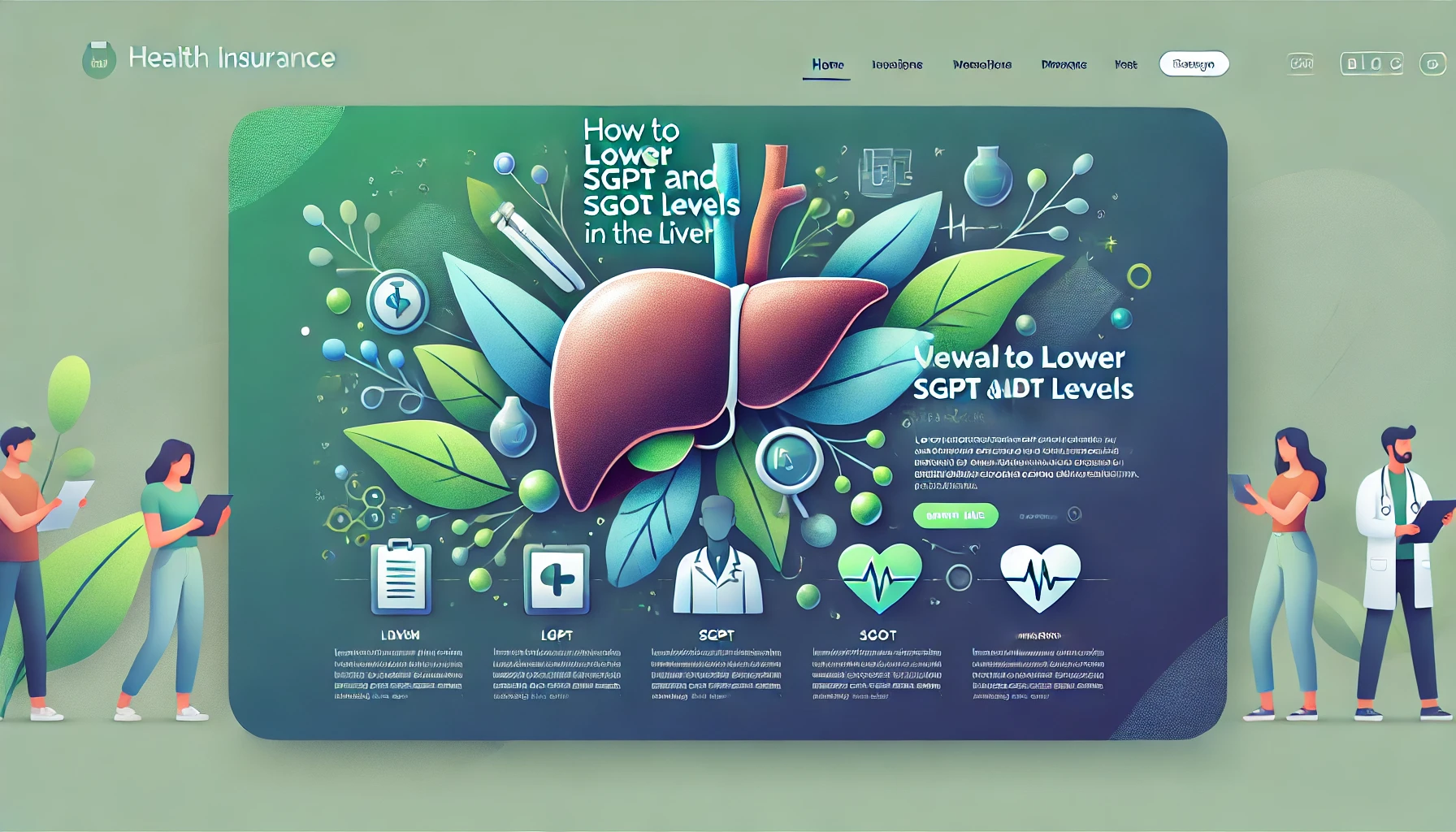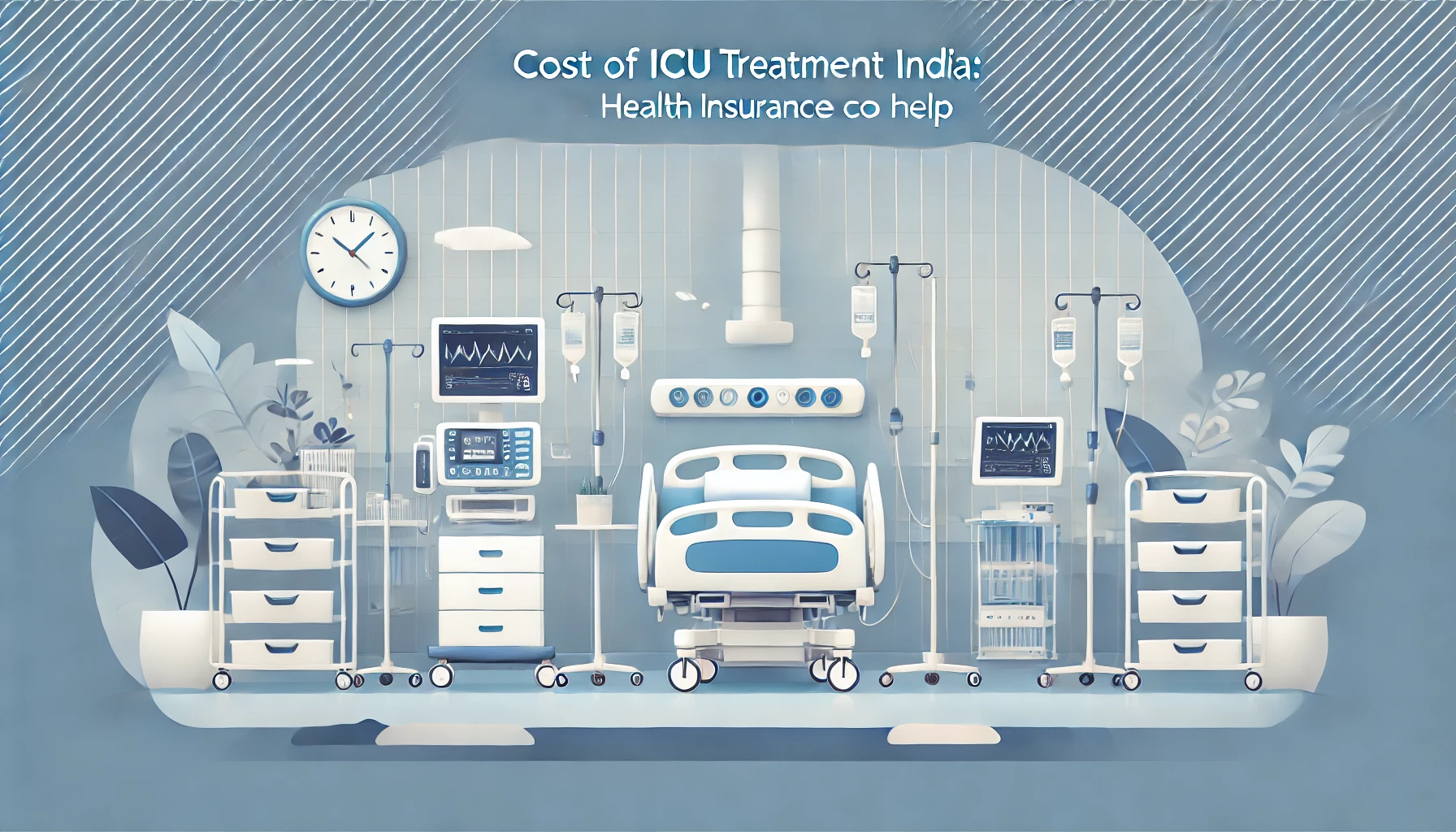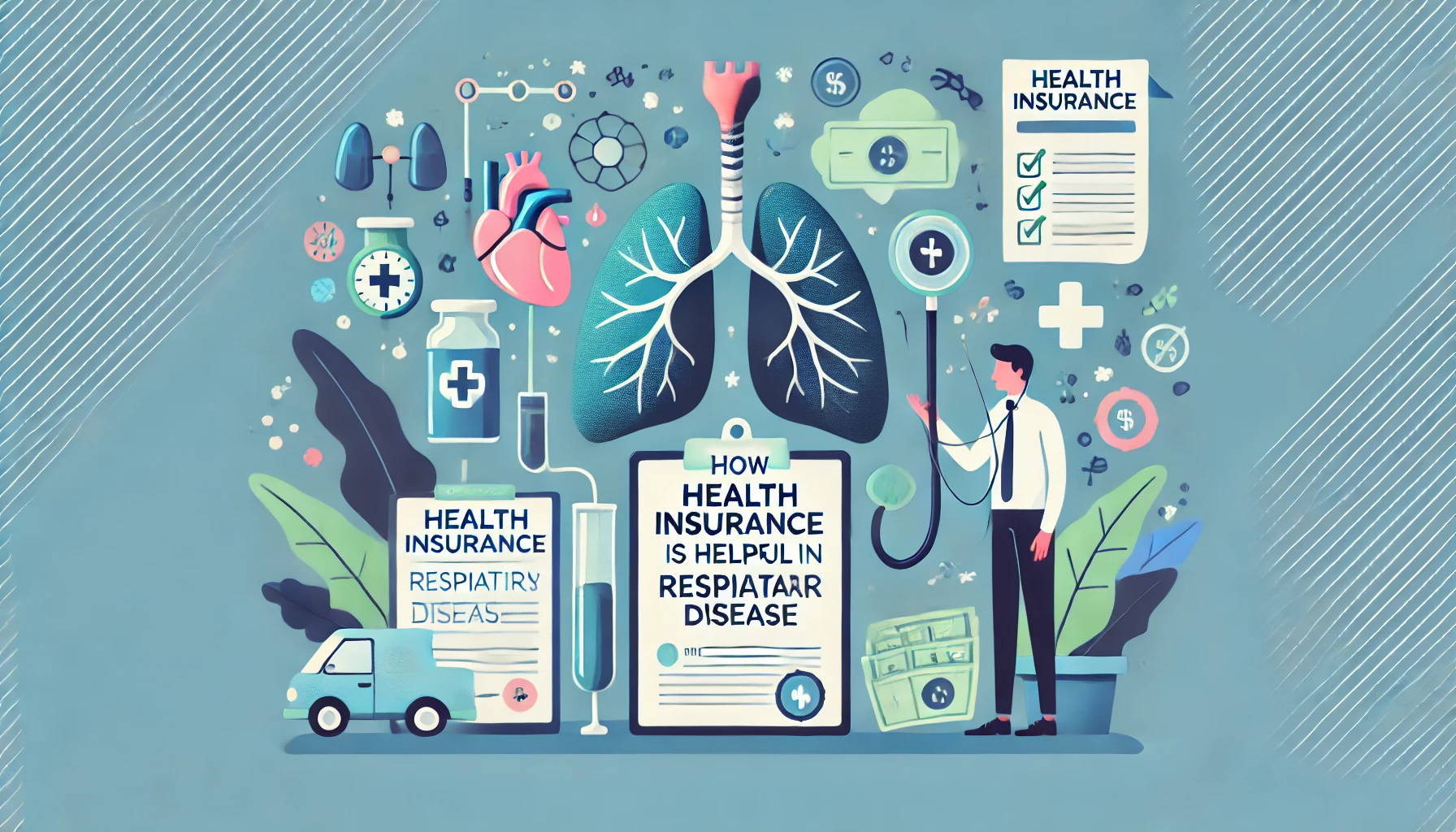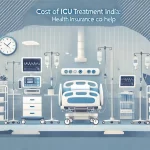The full form of ICU is Intensive Care Unit—a specialized section of hospitals dedicated to patients requiring critical medical attention. ICUs are equipped with advanced monitoring systems, life-support machines, and a highly trained medical staff to handle life-threatening situations. These units cater to patients suffering from severe injuries, complications, or illnesses like cardiac arrests, organ failures, or post-surgical conditions that demand round-the-clock care.
ICUs play a pivotal role in modern healthcare, serving as a lifeline for individuals in dire medical situations. The availability of advanced equipment such as ventilators, defibrillators, and infusion pumps ensures timely intervention, improving survival rates. The significance of ICUs transcends patient recovery, offering hope to families and safeguarding lives.
Why ICU Coverage is Essential in Indian Health Insurance Plans
ICU treatment can be prohibitively expensive, especially in private hospitals where daily charges can range from INR 10,000 to INR 50,000 or more, depending on the level of care required. This is where health insurance with ICU coverage becomes indispensable. Many comprehensive health insurance policies in India cover ICU expenses, including room charges, diagnostic tests, and specialized equipment usage, reducing the financial strain on families during critical times.
Indian health insurance plans often come with room rent limits, which can impact ICU coverage. Choosing policies with higher caps or no sub-limits ensures better financial protection. Additionally, features like cashless hospitalization and ambulance services enhance convenience and care access during emergencies.
In conclusion, ICU facilities save lives, but their costs can be overwhelming. A robust health insurance plan ensures that individuals receive the best care without worrying about the financial burden. Ensuring ICU coverage in your health policy is a crucial step toward securing your health and peace of mind.
Understanding ICU: Definition, Purpose, and When It’s Needed
An ICU (Intensive Care Unit) is a dedicated hospital unit that provides specialized care to critically ill patients who require constant monitoring and advanced medical intervention. ICUs are designed to handle life-threatening conditions where immediate attention can make a difference between life and death. These units are equipped with cutting-edge technology, including ventilators, infusion pumps, patient monitoring systems, and life-support machines, along with a skilled team of doctors, nurses, and specialists available 24/7.
The primary purpose of an ICU is to stabilize patients, prevent complications, and facilitate recovery in the most controlled medical environment. Unlike general wards, ICUs cater to patients who need high-intensity care and constant observation. Whether it’s managing severe infections, addressing respiratory failures, or supporting organ dysfunction, ICUs ensure comprehensive care tailored to the patient’s condition.
When Do Patients Need ICU Admission?
ICU admission is often required for patients facing critical illnesses, emergencies, or post-surgical complications. Some common scenarios include:
- Severe infections or sepsis: Conditions that lead to organ failure or blood infections.
- Respiratory distress: Difficulty in breathing due to conditions like pneumonia or COVID-19.
- Cardiac emergencies: Heart attacks, cardiac arrests, or severe arrhythmias needing advanced support.
- Trauma or accidents: Severe injuries from road accidents or falls.
- Post-surgery care: Recovery after major surgeries like transplants or cardiac operations.
- Neurological conditions: Brain injuries, strokes, or severe seizures.
ICUs play a critical role in stabilizing such patients, using state-of-the-art equipment and expert care to monitor and improve vital functions. With ICU coverage included in a health insurance plan, families can ensure timely access to these life-saving services without financial strain.
Types of ICUs in Hospitals: A Comprehensive Overview
Intensive Care Units (ICUs) in hospitals cater to patients requiring different levels of specialized care based on their conditions. Here’s a detailed breakdown of the common types of ICUs and their unique functions:
1. General ICU
A General ICU is designed to manage critically ill patients with a variety of medical conditions. These units typically treat:
- Patients with respiratory distress.
- Individuals with multi-organ failure.
- Cases of severe infections or sepsis. The care provided in general ICUs is not condition-specific, making them versatile in handling a range of emergencies.
2. Specialized ICUs
Specialized ICUs focus on specific medical needs, with tailored facilities and expertise:
| Type of ICU | Description |
|---|---|
| Neonatal ICUs (NICU) | Care for newborns with complications like premature birth or congenital issues. |
| Pediatric ICUs (PICU) | Focused on critically ill children up to 18 years of age. |
| Cardiac ICUs (CICU) | Dedicated to patients with severe heart conditions, such as heart attacks. |
3. Surgical and Post-Operative ICUs
Surgical ICUs are crucial for patients recovering from major surgeries. These units monitor:
- Vital signs post-surgery.
- Complications like bleeding or infections.
- Patients after organ transplants or cardiac procedures.
4. Trauma ICUs
Trauma ICUs are equipped to handle severe injuries from accidents or physical trauma. These units provide:
- Immediate stabilization of patients.
- Advanced treatment for fractures, internal bleeding, or brain injuries.
- Rehabilitation plans post-recovery.
Choosing a hospital with advanced ICU facilities ensures tailored care for every critical condition. Including ICU coverage in health insurance ensures financial preparedness for accessing these life-saving services.
Key Features and Equipment in an ICU: Essential Tools for Critical Care
An Intensive Care Unit (ICU) is equipped with specialized tools and systems that support the survival and recovery of critically ill patients. These advanced devices ensure precise monitoring, treatment, and care, providing a controlled environment for life-saving interventions. Here are the key features and equipment commonly found in ICUs:
1. Life-Saving Equipment in ICUs
ICUs house critical tools like ventilators, defibrillators, and patient monitors.
- Ventilators help patients with severe respiratory distress breathe when they are unable to do so on their own.
- Defibrillators restore normal heart rhythms during cardiac emergencies.
- Patient monitors track vital signs such as heart rate, oxygen levels, and blood pressure in real-time.
2. Monitoring Systems in ICUs
Real-time monitoring systems are a cornerstone of ICU care.
- These systems continuously collect and display patient vitals, enabling rapid responses to changes in health conditions.
- Alerts and alarms notify medical staff of any critical deviations, ensuring prompt interventions.
3. Advanced Respiratory Support Machines
Respiratory care is critical in ICUs, and devices like ventilators and oxygen therapy machines play a vital role.
- Ventilators deliver oxygen directly to the lungs and remove carbon dioxide.
- Oxygen therapy devices provide supplemental oxygen to patients with low blood oxygen levels.
4. Cardiac Care Devices in ICUs
Cardiac care equipment, such as ECG machines and external pacemakers, is essential for managing heart-related emergencies.
- ECG machines monitor heart activity, helping diagnose arrhythmias and other cardiac conditions.
- Pacemakers assist in maintaining a steady heartbeat.
5. ICU Beds and Mobility Aids
ICU beds are specially designed for immobile patients.
- Features like adjustable height, tilt angles, and side railings ensure patient comfort and safety.
- Mobility aids and lifts help reposition patients, preventing bedsores and improving circulation.
ICUs, equipped with advanced tools and devices, are the backbone of critical care. Ensuring that your health insurance plan covers ICU treatment can safeguard your financial stability while accessing these life-saving facilities.
Cost of ICU Treatment in India: How Health Insurance Can Help
ICU (Intensive Care Unit) treatment is critical for patients with life-threatening illnesses or injuries. While the care provided in ICUs is unparalleled, it can also be quite expensive, especially in India, where the cost varies significantly between private and government hospitals. Here’s a detailed look at ICU treatment costs, health insurance coverage, and the types of policies that ensure financial security during medical emergencies.
How Much Does ICU Care Cost in India?
The cost of ICU treatment depends on the type of hospital, the level of care required, and the facilities available.
| Hospital Type | Approximate Daily Cost |
|---|---|
| Government Hospitals | INR 2,000 – INR 10,000 |
| Private Hospitals | INR 10,000 – INR 50,000 or more |
Private hospitals charge significantly more due to advanced equipment and specialized care. Costs can escalate further if additional services like ventilators, dialysis, or surgeries are required.
Does Health Insurance Cover ICU Expenses?
Most health insurance plans in India provide coverage for ICU expenses. These include:
- Room Rent: Coverage for ICU bed charges, often higher than standard room rent.
- Medical Procedures: Expenses for life-support equipment and diagnostic tests.
- Doctor’s Fees: Consultation and specialist charges.
- Medicines and Consumables: Drugs, syringes, and other essentials used during treatment.
ICU and Indian Health Insurance: Coverage Options
Types of Policies Covering ICU Treatment
- Critical Illness Policies: Designed for specific life-threatening conditions, covering ICU costs related to those illnesses.
- Comprehensive Health Insurance Plans: Offer broader coverage, including ICU charges for emergencies and surgeries.
Understanding Room Rent Limits in ICU Coverage
Many policies have room rent caps, limiting the daily amount reimbursed for ICU stays. For example:
- A policy may cover only INR 10,000 per day, while ICU charges could be higher in private hospitals.
To avoid out-of-pocket expenses, choose plans with no sub-limits or higher room rent limits.
Additional Benefits in Health Plans for ICU Admission
Some insurance policies provide extra benefits, including:
- Cashless Hospitalization: Direct settlement of hospital bills without upfront payment.
- Ambulance Charges: Coverage for emergency transportation.
- Post-Hospitalization Costs: Expenses for follow-up care after ICU discharge.
Top Health Insurance Providers in India Offering ICU Coverage
Several leading insurers offer policies with robust ICU benefits. Some examples include:
- Bajaj Allianz Health Insurance: Comprehensive plans with higher room rent limits and cashless treatment options.
- Star Health Insurance: Specialized critical illness policies covering ICU care.
- HDFC ERGO Health Insurance: Offers policies with no room rent caps and wide coverage.
- New India Assurance: Affordable policies catering to both government and private hospitals.
Conclusion
The cost of ICU treatment in India can be overwhelming, but a well-planned health insurance policy ensures financial protection. Policies covering ICU charges, high room rent limits, and additional benefits like cashless hospitalization can make a critical difference. Before choosing a plan, evaluate the coverage options carefully to avoid unexpected expenses during emergencies.

What Is Dietary Fiber?
Dietary fiber is a plant-based nutrient essential for digestive health. Unlike proteins, carbohydrates, and fats, …

What is Beta Carotene?
Beta-carotene is a red-orange pigment found in plants and fruits, especially carrots and colorful vegetables. …

What are Vitamins?
Vitamins are organic compounds essential for the body to function properly. They are required in …

10 Reasons Why Sweet Potato is a Superfood
Sweet potatoes are not only delicious but also incredibly nutritious, earning their title as a …

उच्च रक्तचाप के मुख्य कारण और समाधान
उच्च रक्तचाप का इतिहास और इसकी समस्या उच्च रक्तचाप, यानी हाई ब्लड प्रेशर, एक गंभीर …

Health Benefits of Tulsi Leaves You Must Know
The History and Origin of Tulsi Tulsi, also known as Holy Basil, holds a sacred …

How to Lower SGPT and SGOT Levels in the Liver?
SGPT (Serum Glutamic Pyruvic Transaminase) and SGOT (Serum Glutamic Oxaloacetic Transaminase) are enzymes produced by …

What is PCOD Problem in Women?
Polycystic Ovary Disorder (PCOD) is a hormonal condition affecting millions of women worldwide, primarily during …

ICU Full Form Types and Equipments
The full form of ICU is Intensive Care Unit—a specialized section of hospitals dedicated to …

How Health Insurance Can Help in Managing Respiratory Diseases
Respiratory diseases, including asthma, chronic obstructive pulmonary disease (COPD), and respiratory infections, are prevalent in …

How Health Insurance Can Be Used as an Investment Tool
Health insurance is traditionally viewed as a means to protect oneself from the financial burden …

5 Essential Questions to Ask Before Buying Health Insurance
Health insurance is an essential tool for managing medical expenses and ensuring access to quality …

5 Tips to Choose the Right Health Insurance for COPD
Chronic Obstructive Pulmonary Disease (COPD) is a major health issue affecting millions in India. This …

At What Age Should You Opt for Health Insurance
Health insurance is a crucial financial tool that protects individuals from unexpected medical expenses. However, …

Cashless Claim in Health Insurance
Health insurance plays a critical role in ensuring financial protection against rising medical costs. One …

3 Positive Changes That Can Improve Your Health and Well-being in India
In today’s fast-paced world, maintaining good health is often a challenge. However, making a few …

3 Major Advantages of Having Health Insurance in India
Health insurance is no longer an option but a necessity in today’s world, especially in …

3 Must-Have Benefits in Your Health Insurance Policy for Maximum Coverage
Health insurance has become an essential part of financial planning in India, particularly with rising …

3 Benefits That Make Health Insurance Absolutely Necessary in India
Health insurance has become a critical part of financial planning in India. Rising medical expenses, …


















